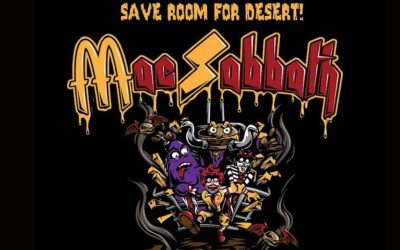To some, the news that the Toronto Blue Jays and other professional sports franchises make substantial profit from the resale of their own tickets didn’t come as much of a surprise. The presence of an attempt at exclusivity with one resale marketplace alone should be a good indicator that teams are getting a cut – whether or not they are scalping their own tickets directly, which StubHub officials confirmed (and we consider the more startling revelation in the reporting by the The Star/CBC News)…
But apparently there was a large number of fans out there who hadn’t come to that conclusion, and the Blue Jays are getting roasted by them in the wake of the report that dropped on Thursday, just in time for opening day.
“The Jays had best remember that their livelihoods depend on fan support,” wrote Georgia Volker of Toronto in one of two sets of Letters to the Editor published by The Star in the wake of the story. “This is no way to treat your devoted and adoring fan base.”
“I will never again buy tickets to any of Blue Jays games, wrote Louis Desjardins of Belleville, Ontario. “When going online, all ticket sales go either to Ticketmaster (“sorry, unavailable, try again”), Vivid, StubHub or other resale vendors. Now I see that the club gets a share of these sales. This is a truly disgusting revelation.”
One reader, Dan Frazer from Toronto, seemed to have a good grasp of just how common this type of activity (EG the use of the secondary market by teams, venues, and artists, in all sections of the live entertainment industry, to get around their own stated face value prices) is. “It’s not at all surprising that sports teams are now getting in on the ticket-broker action, as musical acts have been scalping their own fans for years via StubHub, et al.,” he wrote in a letter published Sunday. “Sadly, greed now seems to be the great American pastime.”
Another took direct aim at the fact that despite the double-dip committed by the team on these tickets, the team continues to raise prices for its “most valued” fans – season ticket holders, while putting a sub-standard product on the field. “The current management has done nothing since their first day that has been the least bit exciting,” he wrote. “the players they have signed or traded for are second tier at best or discarded by their former team. Meanwhile, my seats have gone up in price by $3,000 over the past two years – $1,900 this year alone.”
“If they keep this up, they will be looking at row after row of empty seats. I have been there and have seen it.”
Clearly the revelations of the team cut on the secondary market (or direct use of it) has struck a nerve among the public which didn’t realize how common of a practice it was.
The question is, will the management of the Blue Jays – which has not commented publicly on the reporting, by the way – disavow the practice of pushing fans to a specific market in order to cash in themselves? Will the backlash cause other teams – for example Cleveland, which zealously threatened fans with ticket cancellations during the playoffs last year if they occurred anywhere besides StubHub, for reasons that are even more obvious now than at the time – fear the anger of their own fans? Or will this just be a blip of a story that quickly fades, allowing rights holders to continue playing both sides of the ticket fence by railing against scalping when it is convenient and then profiting from it without the knowledge of the public?
Time will tell.




